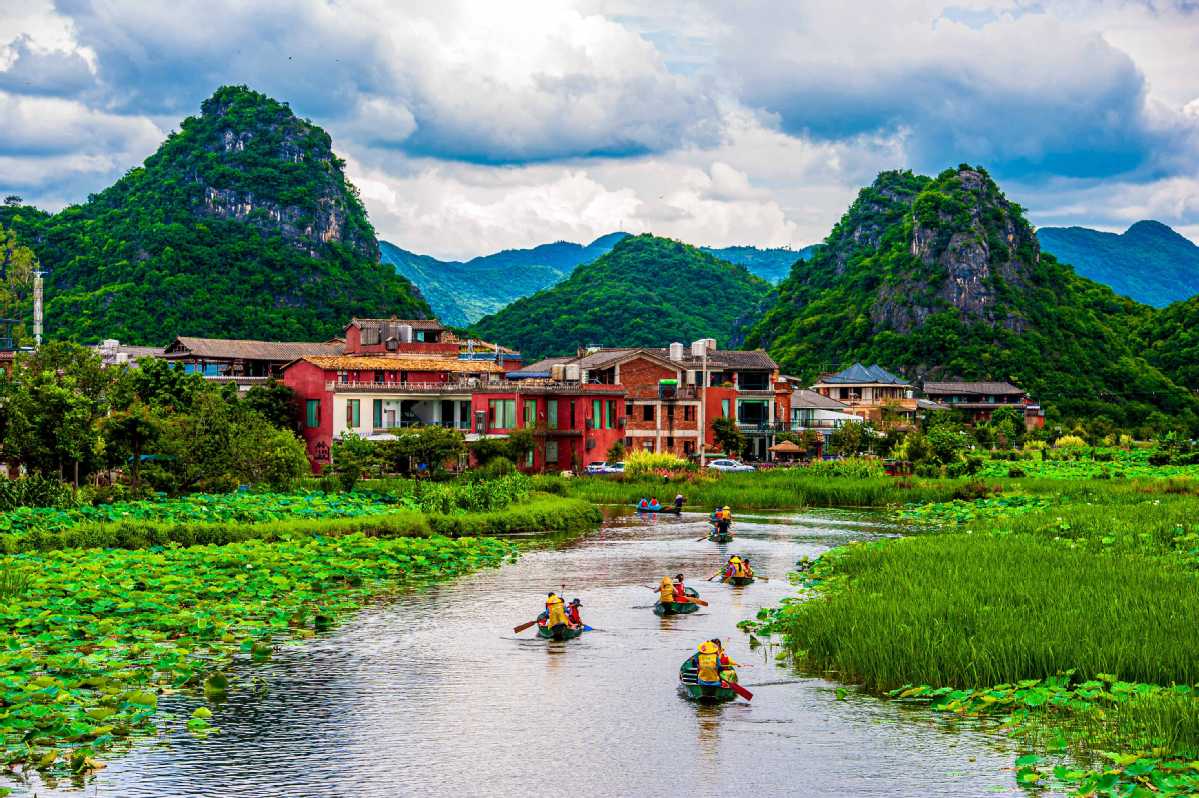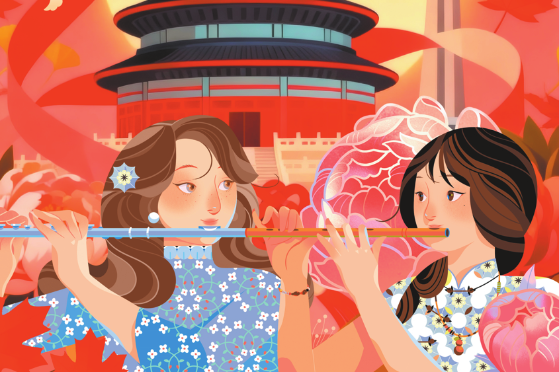Young people redefining summer tourism


Summer has always been the peak tourism season in China. But this year's summer tourism season is not only about crowds and sunshine but also about change. Youths, especially Gen Z and college students, are reshaping the way the Chinese people travel. They prioritize quality over quantity, substance over mileage, and experience over exhaustion.
Gone are the days of whirlwind itineraries packed with low-cost sightseeing. Today's youths seek better, richer experiences. According to travel platform Fliggy, the average travel spending by college students this summer is up by 6 percent year-on-year, with average trips lasting about 2.9 days. Tourism for them is not just about ticking the boxes; it's also about reconnecting with the self and rediscovering the joy of exploration.
As temperatures soar, young travelers are chasing comfort along with the quest for natural and historical sites. "Wellness travel" is a new trend. Think blue skies, snow-capped peaks, rolling grasslands and crystal clear lakes. Places like Qinghai province, the Xinjiang Uygur autonomous region, Yunnan province, the western part of Sichuan province, and Northeast China, where temperatures remain below 25 degrees Celsius in summer, have become favorite tourist destinations.
Some go even further — literally crossing the equator to experience winter in July. New Zealand, South Africa and Chile have become popular "reverse-season" retreats for Chinese tourists. Countries like Norway and Iceland, where travelers can hike across glaciers, ski on alpine slopes, or simply unwind in a lakeside village are also attracting lots of Chinese tourists.
Today, travel is as much about emotions as it is about destinations. Events such as concerts, sports tournaments, and cultural festivals have become magnets for travelers. From music festivals and football games to dragon boat races and folk festivals, young people's choices are varied.
For young people, summer nights, in particular, have acquired added charm. For instance, in Xishuangbanna, Yunnan province, a night tour through a tropical forest — lit by glowing fireflies — feels like wandering through a living galaxy. At Gexian village, Shangrao city of Jiangxi province, "illuminated parades" turn the place into a dynamic painting, bringing the lanterns to life.
For young Chinese tourists, participation is everything. Not interested in passive sightseeing, they want to be part of the experience. In Zhejiang province's Anji county, homestays in rural areas offer hands-on activities like farming, cooking, and traditional handicrafts, attracting families and young travelers alike. In Kaifeng, Henan province, an immersive boat tour, dubbed "A Day in the Song Dynasty (960-1279)" invites visitors to put on period attire, play poetry games, and enjoy music and dance along ancient canals. In Kaifeng's Wansui Mountain, a martial arts theme park, more than 80 live performances a day bring visitors "face-to-face" with Song-era heroes.
And interactive performers on "The Longest Day in Chang'an" themed street in Shaanxi province have been drawing tourists to theaters through historical narratives. You're not just watching a story; you're living it.
"Brave souls experience the world first" — this Gen Z motto reflects youths' growing thirst for novelty and adventure. Whether it's skydiving, bungee jumping, VR time travel or simulated space travel, young people are seeking once-in-a-lifetime thrills.
In Qingdao, Shandong province, for example, a VR attraction brings Chinese sea creatures mentioned in folklore and mythology to life. In Gansu province, the Mars Base 1 Camp in Jinchang city fuses aerospace science with immersive tourism, offering space-themed music festivals, sci-fi salons, and the chance to "spend time among the stars".
As young people pursue richer, more layered experiences, tourism in China is shifting from "sightseeing travel" to "scene-based engagement", from grabbing eyeballs to winning hearts. The summer tourist surge is just the beginning.
Therefore, the travel industry must embrace personalization, creativity and quality, in order to develop immersive content, improve services, and foster regional collaboration. Only then can it help build a new tourism ecosystem, one that meets the evolving needs of young travelers while unleashing the full potential of the "experience economy".
Song Rui is director of the Tourism Research Center at the Chinese Academy of Social Sciences; and Tao Zhihua is a PhD student at the same institute. The views don't necessarily represent those of China Daily.
If you have a specific expertise, or would like to share your thought about our stories, then send us your writings at opinion@chinadaily.com.cn, and comment@chinadaily.com.cn.


































